Hotels, motels and other hospitality businesses used to exist for fairly simple reasons: They were places for guests to lay their heads away from home on business trips or vacations. But anyone who’s spent time in the hospitality industry in the last several years knows that behind the scenes things are no longer simple: The role of hospitality technology and hospitality communication has drastically expanded.
In many cases, hotels and resorts are becoming hubs of activity unto themselves. Most of this activity relies directly or indirectly on technology, making IT more important to hotel operations and the guest experience than ever before.
Here, we share some of the top hospitality communication trends today. As a business owner, are you taking advantage of all of these opportunities? If not, consider making some changes and planning accordingly. After all, in hospitality, every advantage counts.
1. Mobile Device as Door Key
It’s fascinating that a function as simple as a door key could undergo so much evolution. But the tool that once started as a piece of metal quickly turned into electronic key cards, and now has shed its physical form altogether. The “key” has been transformed into data on a guest’s mobile device. If you haven’t already implemented this communication technology where guests’ smartphones unlock not only their door, but many other benefits, talk to our expert team about how to bring it to your property.
2. Service Automation
In some ways, this trend is “anti-communication.” Instead of guests having to interact with your front desk staff, they can check in and out remotely on their device. Ordering room service or an extra pillow can be done right from the phone. Automating these basic guest requests and interactions can save on labor hours and free hotel staff up for other activities that enhance the guest experience.
3. Spreading the word
As a hotel or hospitality business owner, you have several key groups of people to communicate with such as guests, staff and booking services. Technology can play a key role in reaching all of them.
- Online distribution technology enables you to efficiently market and sell your inventory to a broad audience of potential guests. For instance, channel managers automate the process of listing your rooms across multiple booking platforms, streamlining inventory management.
- Direct booking technology empowers you to sidestep commission fees charged by third-party platforms like Booking.com, enabling direct transactions with customers. Online booking engines, for example, seamlessly integrate with your website, facilitating guests to book and pay directly with your establishment.
- Property management technology gives you control over the day-to-day operations of your business. Property management systems, for instance, offer a unified interface to oversee reservations, booking calendars, guest profiles, housekeeping, maintenance and more.
Another key technology to master is having a top-performing website so your property can be found when potential guests are searching online. Being sure your site follows current search engine optimization (SEO) practices is important.
4. Makeovers for Room Phones
Once upon a time, people used their room phones. However, the pervasiveness of mobile devices has relegated the conventional room phone to a vastly reduced role or to being replaced altogether.
Now guests can pair their mobile devices to in-room devices giving them full control of their surroundings. For instance, they can:
- Control the TV and the sound system.
- Activate room darkening blinds.
- Control the room thermostat.
- Allow for notifications from the staff.
5. Guest Apps
The vision of the connected guest relates to nearly every aspect of the guest experience. Something this complex needs a single hub of operations. Guest apps for personal mobile devices are the natural place to host all of these functions. A well-designed guest app can combine everything from deal notifications to hotel services to loyalty programs.
Apps are one of the top communication trends in hospitality and a helpful tool for hotel management. For instance, if you see a guest used a group rate for a conference at your property, you could use the app to electronically send the guest the event itinerary, complete with a map of meeting spaces where sessions will be held.
Most major hotels have some app element in play already, and they’re adding capabilities every day. One thing is certain: The hotel with a truly connected experience will be full of happy, empowered guests.
6. Battle for Bandwidth
A smartphone. A laptop. A tablet. An e-reader. It seems like guests bring every device for sucking internet bandwidth with them when they travel. Regardless of whether they’re traveling for business or pleasure, if they can’t connect to the internet as quickly and reliably as they do at home, they will complain in person or online.
So how do you multiply those data needs by dozens, if not hundreds, of guests (possibly thousands if you land a big conference)? It’s a huge strain and a topic to address with your hospitality IT provider.
7. Location-Based Services
The implications of the technology are huge and can bolster communications. Being able to understand where hotel staff and guests are located at any given time creates all kinds of opportunities to improve the guest experience — from being able to deliver services to guests while freeing them from their rooms to helping event staff operate more efficiently to turning over rooms more quickly and beyond.
8. SIP-DECT
SIP-DECT is a mobility-enabling alternative to VoWLAN and radio-based networks that is a communication trend in hospitality. Many SIP-DECT setups bring the kind of features usually found on a fixed network to mobile workers all over your hotel or campus without tethering them down to specific locations. Since hotel service staff, like housekeeping, valet, concierge and event staff are often on the go, SIP-DECT is a natural fit for hoteliers.
With a relatively low cost (compared to the alternatives), ease of deployment and quality, and predictable voice quality to boot, SIP-DECT could be perfect for your organization if you’re not already taking advantage of its benefits.
9. Social Listening
Of course, listening is a key element of communication. Guests have a lot to say about their experiences at hotels or resort properties, but they don’t always say it directly to you. And in a hospitality world where word-of-mouth and online reviews wield undeniable influence, it’s one of the reasons that more and more hotels invest in social listening tools. These tools allow hotels to find out about guests’ wants, needs, desires, complaints and more — and jump into the conversation if and when it makes sense to do so. Some even let you keep an eye on the competition. The internet is a treasure trove of business intelligence if you know how to look.
Get Ahead With Communication Trends
Today’s technological innovations are changing the face of communication in the hotel and hospitality industry. It’s important to stay ahead of the game when it comes to appealing to new guests and those who have stayed with you previously.
Are you interested in future-proofing your organization with the latest technology communication trends? Talk to one of our hospitality experts for more information today.
